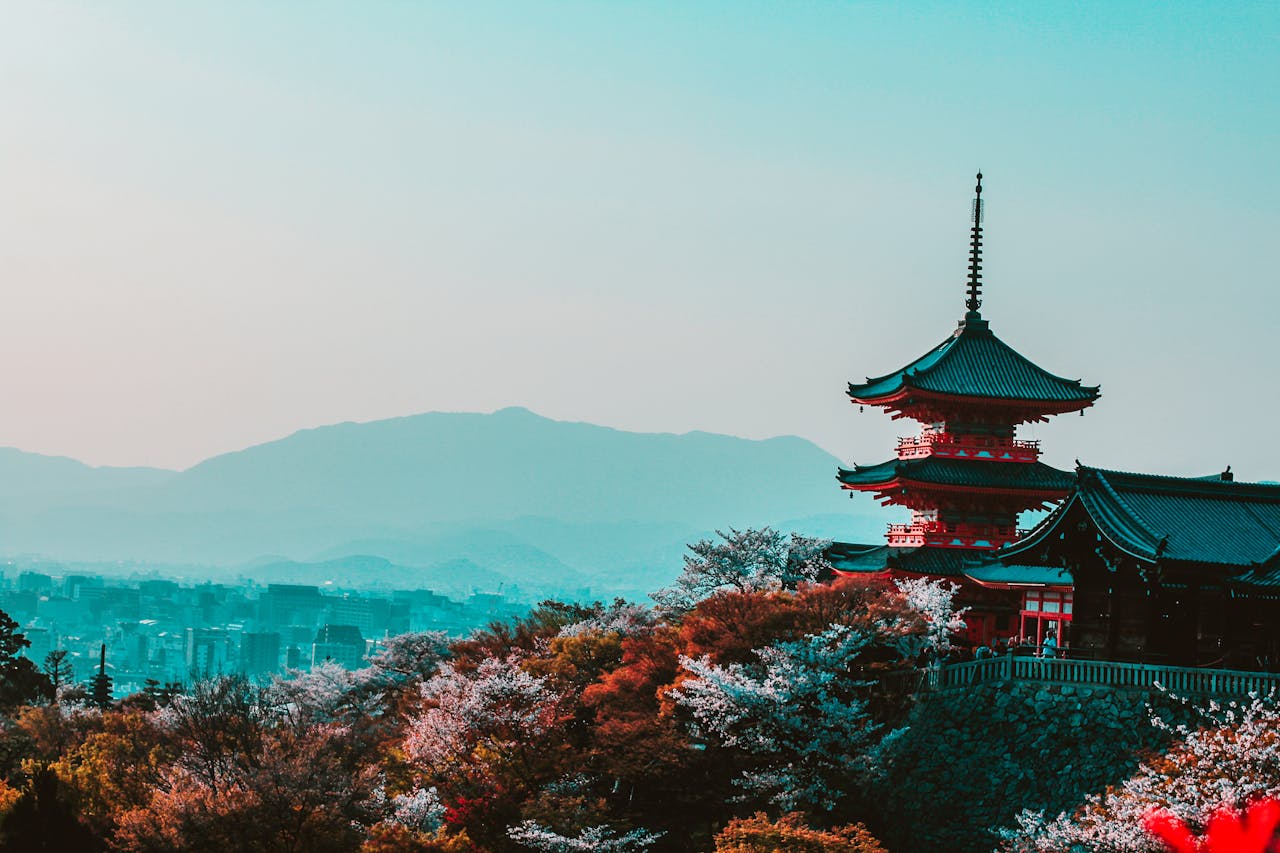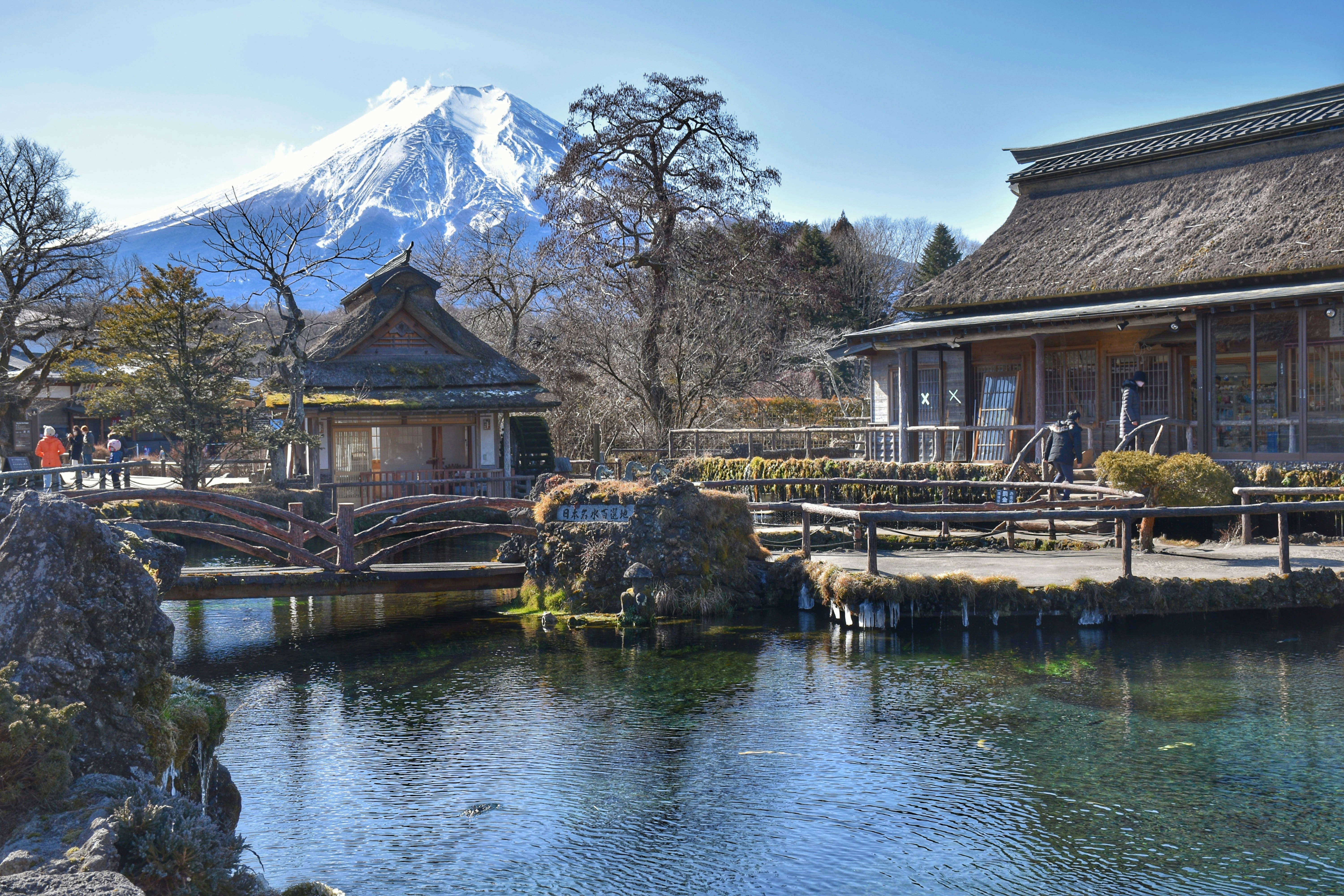Halal-Friendly Destinations in Japan

For Muslim travelers, Japan has become increasingly accommodating, offering a variety of halal dining options, prayer facilities, and cultural experiences that align with Islamic practices. From bustling cities to serene villages, there are many destinations where Muslim visitors can enjoy Japan with comfort and peace of mind.
Tokyo
Tokyo offers a variety of Muslim-friendly spots. Tokyo Camii and Turkish Culture Center in Shibuya is not only a mosque but also a cultural hub showcasing stunning Ottoman-style architecture, featuring grand domes and intricate calligraphy. Visitors can participate in cultural workshops or attend events that highlight Turkish traditions, all within central Tokyo.
Asakusa is a historic district famous for Sensō-ji, a Buddhist temple dedicated to the Goddess Kannon. The area captures the traditional “shitamachi” atmosphere and hosts cultural festivals throughout the year. Halal restaurants such as Halal Wagyu Yakiniku Panga and Honolu Ramen provide authentic Japanese flavors, while local souvenir shops offer halal-certified treats like the traditional Asakusa snack “okoshi.”
Odaiba, a man-made island, is a modern attraction with scenic waterfronts, shopping centers, and entertainment venues. Highlights include DiverCity Tokyo Plaza with its giant Gundam statue and Mumbai Indian Restaurant for halal cuisine. Prayer spaces are available in select shopping centers, and staff can provide guidance on their locations.
Kyoto
Kyoto features Masjid Kyoto, conveniently located near Jingu-Marutamachi Station, offering easy access for prayers. Halal dining options include Genki Sushi, Halal Yakiniku Naritaya, and Naritaya Gion Ramen. Beyond food and prayer, Kyoto is home to UNESCO World Heritage sites like Kinkaku-ji, the Golden Pavilion, and Kiyomizu-dera, a historic temple known for its scenic views and sacred waters. Fushimi Inari Taisha is famous for thousands of vibrant torii gates along Mount Inari, while Shirakawa-go Village showcases traditional Gassho-Zukuri houses with steep thatched roofs.
Nara
Nara Park and Todai-ji Temple are highlights for cultural and natural sightseeing. Nara Park features freely roaming deer and a scenic city-center location, while Todai-ji houses a monumental Buddha statue. Although specific halal facilities are limited, vegetarian options are widely available in local restaurants, providing suitable meals for Muslim travelers.
Osaka
Osaka is a must-visit for halal travelers. Istiqlal Mosque Osaka, managed by the local Muslim community, offers prayer facilities for up to 1,500 worshippers and hosts regular Islamic observances. Visitors can explore Osaka Castle, Shinsaibashi Shopping Street, Dotonbori, and Universal Studios Japan. Halal restaurants like Matsuri serve takoyaki, okonomiyaki, and sushi, while also providing dedicated prayer spaces.
Hokkaido
Hokkaido, Japan’s second-largest island, offers destinations suitable for Muslim travelers, including Sapporo with its first mosque, Masjid Sapporo. Scenic spots like Mount Moiwa provide panoramic city views, and Niseko offers world-class skiing with an increasing number of halal dining options and prayer facilities. Halal restaurants such as Halal Yakiniku Ninja serve traditional Japanese grilled meat dishes.
Yokohama
Yokohama features attractions like Minato Mirai, a waterfront district with scenic views, and Yokohama World Porters for shopping. The Cup Noodles Museum provides an interactive and educational experience. Muslim visitors can pray at Masjid Ja’me Yokohama, located in Tsuzuki-ku, accessible via public transport or a short taxi ride.
Fukuoka
Fukuoka, located in northern Kyushu, offers several halal dining options, including Zaeka for authentic Pakistani cuisine and Navi-San for Egyptian, Indian, Pakistani, and Malaysian dishes. While there are no large mosques in Fukuoka, some public spaces provide prayer rooms, and travelers can use portable prayer mats and apps for Qibla direction. Muslim-friendly attractions include Obori Park with its scenic lake and Dazaifu Tenmangu, a traditional Shinto shrine.
Okinawa
Okinawa is home to Masjid Okinawa near Ryukyu University, serving as a center for the local Muslim community and international students. Visitors can explore local cuisine at Tubarama, offering Okinawan specialties such as gurukun fish, mozuku seaweed, tempura, jimami tofu, and Okinawa soba, or Mango Cafe for fresh mango-based desserts. Attractions like Okinawa World showcase limestone caves, traditional craft villages, and botanical gardens. Shuri Castle, a UNESCO World Heritage site, offers panoramic views of Naha and insight into Ryukyu architecture and history.



